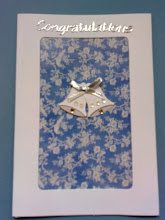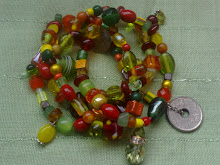My garden is very small but I love it to bits. I love being
creative with it, trying out new things, watching things grow and gardening
with my children. It's a buzz to see things grow and then to bring them
into your kitchen and use them.
I have been looking for a small cherry tree for some time and
found one unexpectedly at a local florist. Little Man's apple tree was
growing crooked and taking up a lot of space in our small flower bed so I
wanted to pull it out and replace it with the cherry tree.
I sent the boys out with the cherry tree and told them they would
have to help me pull out the apple tree. By the time I put my bags away
and got to the garden, they had made short work of the apple tree by digging
around it and yanking it out.
I did consider putting it into a pot, but it was too big and bent
and they had broken too much of the roots.

We replaced the apple tree with the little cherry tree, some
tomato plants and a small kiwi-like vine called "Issai" or Chinese
gooseberry which the florist assured me tastes delicious.
The little lemon tree I had bought had
finally shed most of its flowers so was also ready to be re-potted into a
bigger tub. I managed to bring home three large pots and two bags of
compost by hanging them off Baby's pram. Both bags of compost got used up
pretty quick.
I love looking out of the living room window in the morning and
seeing all of my flowers and plants. The azalea is blooming and the black pansies are also doing
well alhamdulillah.

The white geranium is from last year and the soft pink and white looks so pretty
The other thing my mum advised me to do was the cut back the mint
I have been growing in the tub as it had grown quite back and would flower
soon. Mint is quite a strong aggressive plant and will spread through the
flower beds quickly, so I grow it in a large pot instead. If you are new
to gardening or manage to kill everything, this is a nice herb to start with
because it grows anywhere with little effort or care and can be used for so
many things in the kitchen.
The variety I have is called Chocolate Mint and smells amazing.
Sometime mint has a strong earthy undertone, this one just reminds me of
mint choc chip ice cream. This pic is after I cut it down to the stems.
Mum told me that if I cut it down it would grow back fresh young leaves
in time to use for Ramadan.
So this is my first little harvest from my lovely little garden.
I picked the leaves off and the soft top part of the stems with the
leaves still attached and washed, dried and froze them for use in my next batch of
mint chutney.
What are you growing in your gardens this year? What kind of things would you like to grow?
























































